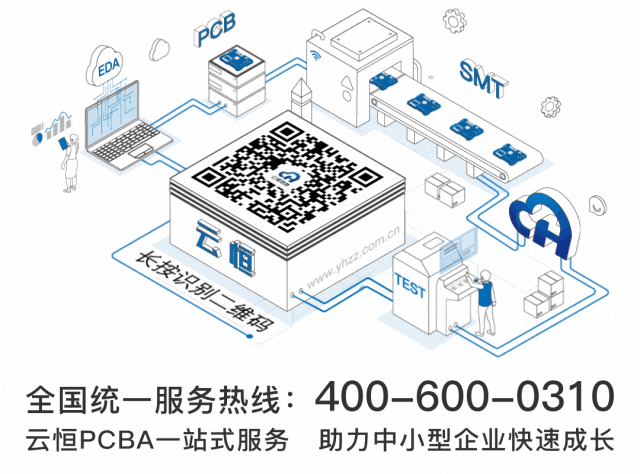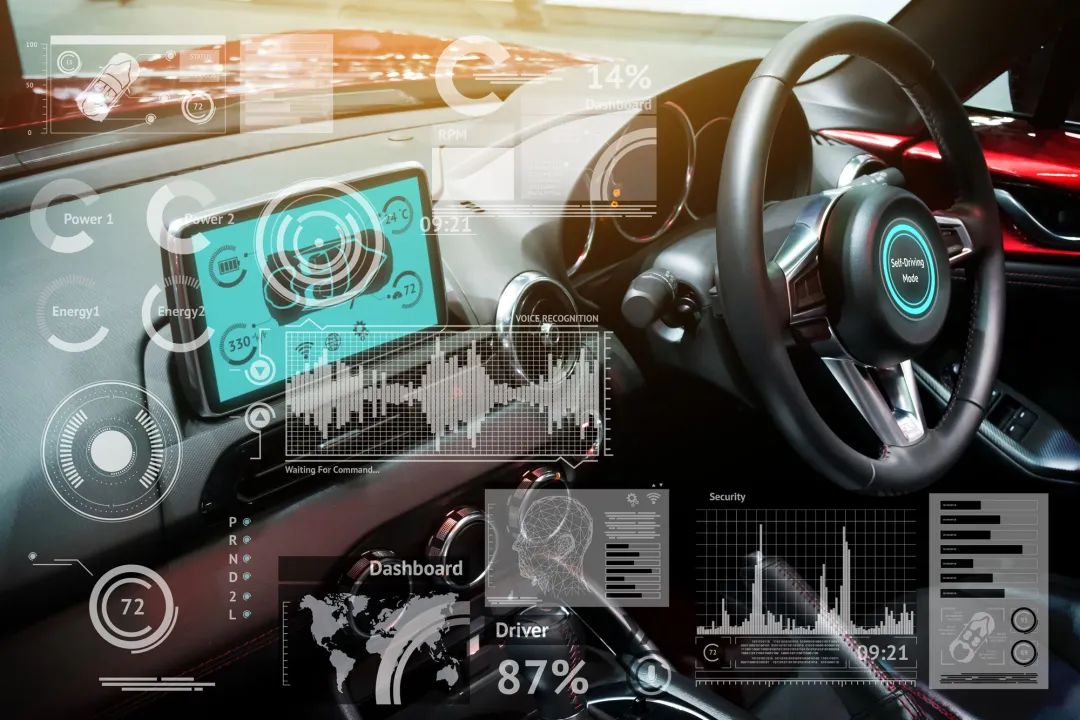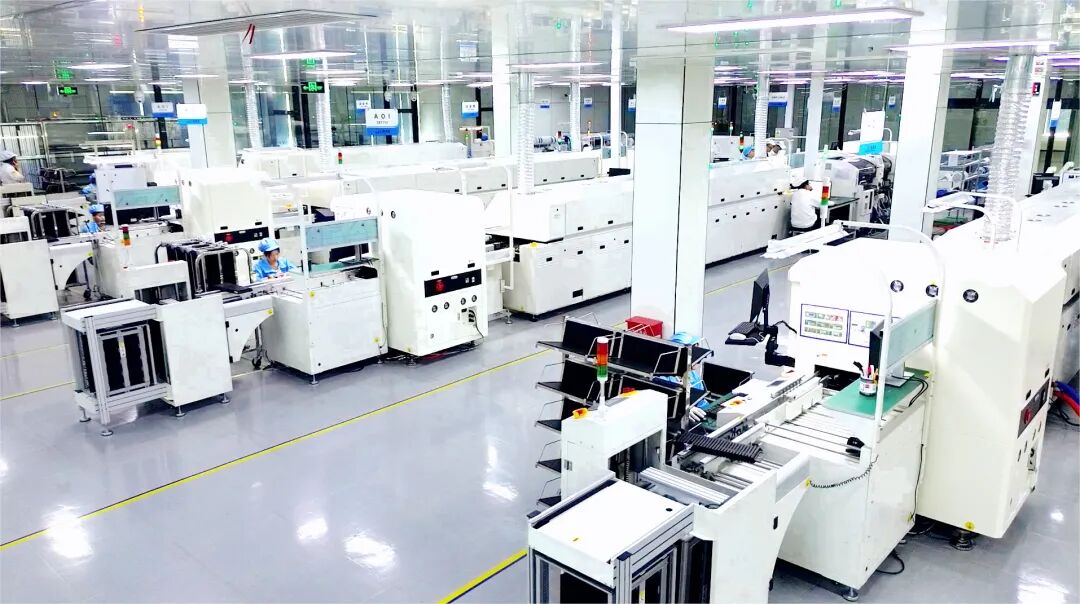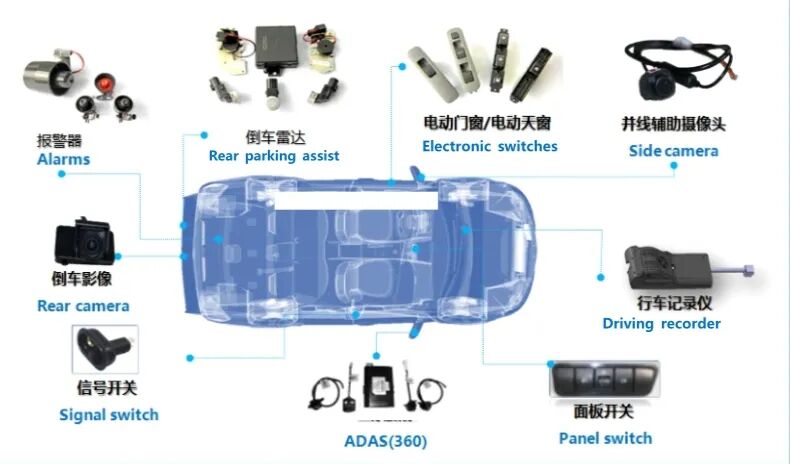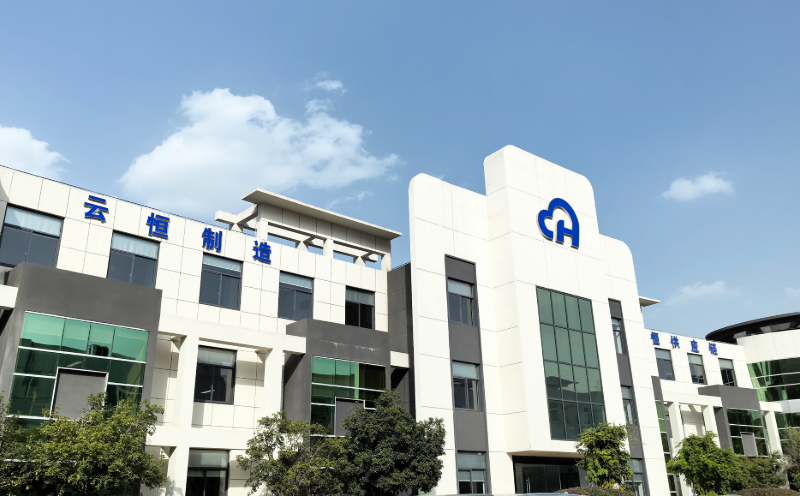As of 2025, automobiles are no longer just a combination of mechanics and steel; they are “mobile intelligent terminals” equipped with thousands of chips and hundreds of control boards. From BYD’s smart cockpit to XPeng’s autonomous driving systems, from Tesla’s battery management systems to Li Auto’s air suspension control, every performance enhancement relies on the high integration and precision manufacturing of electronic hardware. As the core carrier of electronic systems, PCBA (Printed Circuit Board Assembly) is quietly promoting the automotive industry’s transition from the “fuel era” to the “intelligent era” through a “one-stop service” model.
The “Electrification Revolution” in the Automotive Industry: From Function Stacking to System Reconstruction
The global automotive industry is undergoing a technological transformation unprecedented in a century. According to Prismark’s forecast, the global automotive electronics market will exceed $362 billion by 2025, with the electronic cost of new energy vehicles accounting for over 50%, far exceeding the 20% of traditional fuel vehicles. The core driving force behind this transformation is the evolution of automobiles from “transportation tools” to “intelligent spaces”:
-
Intelligence: High-level autonomous driving systems require the integration of multiple sensors such as LiDAR, millimeter-wave radar, and cameras to process large amounts of data in real-time;
-
Connectivity: 5G-V2X technology enables real-time connectivity between vehicles and roads, with vehicle communication modules requiring a response latency of less than 10 milliseconds;
-
Electrification: The precise control of the three-electric system (battery, motor, electronic control) requires power devices to maintain 99.999% reliability in high-temperature and high-humidity environments.
These demands impose nearly harsh standards on the performance and manufacturing of electronic hardware. For example, a certain new energy vehicle company’s battery management system (BMS) requires its PCBA to carry a current of 200A under a 0.5mm pitch BGA package and withstand extreme temperature cycles from -40°C to 125°C—this necessitates a complete innovation across design, materials, and processes.
PCBA One-Stop Service: The “Accelerator” for Automotive Electronics Implementation
Faced with complex automotive electronic demands, the traditional decentralized manufacturing model is no longer sufficient. The PCBA one-stop service integrates design, materials, production, and testing to provide automotive companies with an “end-to-end” solution:
Rapid Support in the R&D Phase
In the development of intelligent driving domain controllers, a leading automotive company once faced prototype testing failures due to signal interference. Through collaborative design with a PCBA service provider, engineers re-planned the wiring using high-density interconnect (HDI) technology, reducing signal crosstalk by 60%, while optimizing the heat dissipation structure through simulation verification, shortening the R&D cycle from 12 months to 8 months. This integrated process of “design-validation-iteration” is becoming key for automotive companies to cope with technological uncertainties.
Reliable Assurance in the Manufacturing Phase
Automotive electronics require reliability far exceeding that of consumer-grade products. For example, the PCBA for the ABS anti-lock braking system must pass 2000 hours of high-temperature and high-humidity testing and 5000 mechanical vibration tests. Leading PCBA service providers control defect rates to below 10 ppm (parts per million) through fully automated SMT production lines, 3D SPI solder paste inspection, and X-Ray solder joint inspection, establishing a full-process traceability system to ensure each circuit board can be traced back to the batch of raw materials.
Flexible Collaboration in the Supply Chain
The supply of electronic materials is particularly important in the development of automotive electronics. If there is a shortage of components, a strong supply chain is needed to quickly complete the verification and switching of alternative components to avoid production line stoppages. This supply chain resilience is the cornerstone of “zero defects, zero delays” delivery in automotive electronics.
Yunheng: Empowering Automotive Electronics Innovation with Full-Chain Capabilities
As a service provider in the smart hardware manufacturing field, Yunheng helps automotive companies bridge the gap in electronic transformation through a “technology + ecosystem” dual-drive approach:
-
Precision Manufacturing: High-precision SMT assembly services that meet automotive-grade standards;
-
Fast Delivery: 48-hour rapid prototyping and 15-day mass production response, supporting flexible production of small batches and multiple varieties, helping startups quickly validate their technology routes;
-
Ecosystem Collaboration: Partnering with the Nanjing Integrated Circuit Industry Alliance to provide value-added services such as process improvement, policy application, and technology finance, reducing overall costs for enterprises.
Future Outlook: The Symbiotic Evolution of Electronic Manufacturing and the Automotive Industry
With the integration of AI large models into in-vehicle systems and breakthroughs in solid-state battery technology, automotive electronics will evolve towards higher integration and lower power consumption. PCBA manufacturing not only needs to address process challenges but also requires co-building a complete ecosystem of “demand-R&D-mass production” with automotive companies. Yunheng is leveraging Nanjing as a pivot to connect the Yangtze River Delta integrated circuit industry cluster, driving Chinese automotive electronics from “following” to “leading”.
◆ ◆ ◆ ◆ ◆ 



